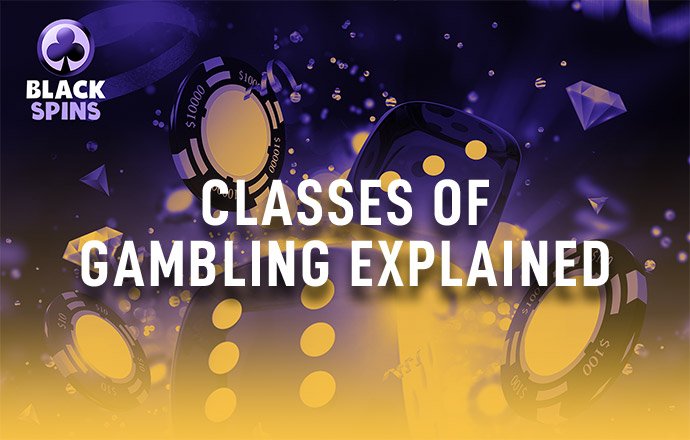The gambling industry is progressively turning out to be a dominating market in the world today. Millions of people across a wide spectrum of countries are engaged in gambling. However, there is no homogeneity in the legal strictures that are imposed to look after the needs of gamblers and organisers, when compared against the strictures imposed by different governments. There is one similar trend observed in all such strictures, however. And that is the ‘Classes of Gambling’ that helps in this assortment.

Classes of gambling allow players and providers to be aware of the risks that are involved in gambling. It clearly demarcates as to what is legal and what kind of a gambling style lies within a particular class or cohort. The article aims to distinguish this difference among the various classes of gambling.
Class 1 and 2 gambling:
Classes 1 and 2 constitute preliminary classes or stages that involve a low-risk play. They also involve low stake play from the perspective of players as well. Under this class of gambling, no commission is offered to the person conducting the gambling. However, remuneration is paid to the person who is authorised to be a caller of housie who has the role of advertising and looking after the completion of the related workflow. Such games that come under this category shouldn’t involve any machines directly or indirectly.
There are no licenses that are issued for organisers under such classes. However, there are slight differences between the 2 classes which players and organisers need to be aware of. Under both the classes, the maximum prize that could be awarded is limited to a definite value wherein, class 1 has a lower limit than the prize value under class 2. Class 1, however, can be conducted by societies or by individuals as well. Under class 2, only societies are allowed to conduct sessions.
Class 3 gambling:
This class, among all classes of gambling, is relatively in the middle ground. The stakes and prize values are well above classes 1 and 2, but still can’t be attributed to a very high-risk value. Certain game types that come under this category are large scale lotteries, housie, instant games, etc. In general, any gambling session that is carried out in a relatively larger audience pool would fall under this category. The games are conducted by societies, and can perhaps be protracted towards corporate societies as well.
The games should not use any machines directly or indirectly. However, any session or organiser will have to license itself under the litigation and legal stricture as imposed by law. The goal of such gambling sessions is to minimalise costs and maximise returns to the community, in a financially viable and organised manner.
Class 4 gambling:
This has the highest risk proclivity among all other classes of gambling. The stakes are quite high, yet the prize denominations are high as well. Such games a”>re conducted at venues or by organisers that need to get themselves or their venues licensed. Essentially, such games involve machines that are present outside a NZ online casino. The potential organisers could be a corporate society, in order to raise money for authorised purposes. This gambling class is of the highest order and perhaps has the most intricate level of risk sharing that needs to comply with the norms and legal recommendations of the government.
Private Gambling practices:
There are certain legal structures that may permit private gambling. Such types of private gambling practices do not fall under any specific category or classes of gambling. However, not many are acclimated to the strictures of private gambling and are prosecuted by law otherwise.
Under this category, all stakes that are betted are finally distributed back among the winners. The notion of such practices is just for entertainment or as a social event. No remuneration will be provided to the organisers. However, they are also not allowed to make advertisements and notices or imply participation to other residents as well. If the game involves the collection of money which has been assigned to a specific person (generally termed as a ‘Bank’), then, the role is periodically changed among participants. There should be no liable admission fee and no deductions must be made to the prize winnings as well.




